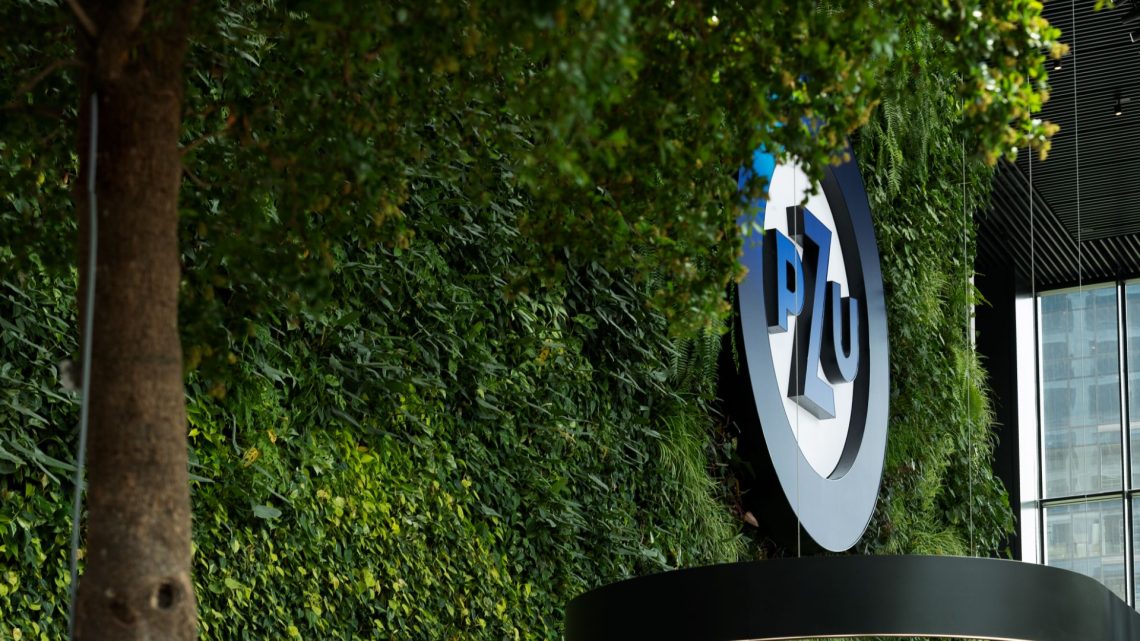-
2-6
-
IIRC
The insurance and financial businesses of the PZU Group are the foundation of Poland’s social and economic security. The business activities undertaken affect the surroundings, the environment and the quality of life. That is why the PZU Group pays very close attention to developing in a sustainable manner, taking into account the current needs of stakeholders and caring for the future of the next generations.
The PZU Group is gradually introducing the concept of sustainable development into more areas of business.
This allows to gradually improve business efficiency, the quality of the relationships built, or better match the needs of stakeholders. In the long term, this translates into an increase in the potential to build value and greater resilience of the entire organization to the impact of negative external factors.
The management aspects are described based on the International Integrated Reporting Council’s “IIRC” guidelines1 . At this point, we present crucial issues of value creation over time with the use of available capital, i.e. the resources that the organization can access and use to create value. We also describe other issues identified by stakeholders as important.



Financial capital
This category includes financial resources held by the PZU Group, obtained from external sources (clients, shareholders, bondholders) and internal sources (profits generated on the Group’s business operations).
| Financial capital (PLN) | 2022 | 2023 |
|---|---|---|
| Assets | 429.2 billion | 467.9 billion |
| Equity | 48.4 billion | 60.5 billion |
| Subordinate bonds | 6.2 billion | 6.2 billion |
Performance management pertaining to this type of capital includes in particular activities related to:
- maintaining financial security and stability;
- ensuring funds for the development and pursuit of the strategy;
- operational and cost effectiveness.
Example of impact on other capitals:
- intellectual (innovation dynamics);
- human (salaries-costs);
- social and relationship (the scale of support for local projects);
- infrastructural (number of branches);
- natural (green investments, taxonomy, emissions offsets).
| Financial capital – results (PLN) | 2022 | 2023 |
|---|---|---|
| Insurance revenue | 24.7 billion | 26.9 billion |
| Investment revenue | 15.4 billion | 28.2 billion |
| Net profit for shareholders of PZU parent company | 3.8 billion | 5.8 billion |
Capital management
On 25 March 2021, the PZU Supervisory Board adopted a resolution to approve the PZU Group’s Capital and Dividend Policy for 2021-2024. The adopted policy is a continuation of the principles set forth in the PZU Group’s Capital and Dividend Policy for 2016-2020.
In accordance with the Policy, the PZU Group endeavors to do the following:
- manage capital effectively by optimizing the usage of capital from the Group’s perspective;
- maximize the rate of return on equity for the parent company’s shareholders, in particular by maintaining the level of security and retaining capital resources for strategic growth objectives through organic growth and acquisitions;
- ensure sufficient financial means to cover the Group’s liabilities to its clients.

It is assumed that certain temporary deviations in the actual solvency ratio above or below the target level may occasionally occur.
Source and data: data after Q3 2023; PZU data (unaudited)
| Solvency ratio | 2022 | Q3 2023* |
|---|---|---|
| SCR | ||
| PZU Group | 240% | 238% |
| PZU | 267% | 262% |
| PZU Życie | 369% | 358% |
| MCR | ||
| PZU Group | 430% | 427% |
| PZU | 987% | 983% |
| PZU Życie | 820% | 796% |
| CRR | 2022 | 2023 |
| PZU Group – total solvency ratio | 17.8% | 16.8% |
| Tier 1 | 16.0% | 15.2% |
| Alior Bank Group – total solvency ratio | 16.2% | 17.8% |
| Tier 1 | 15.0% | 17.2% |



Intellectual capital
As regards intellectual capital, of key significance to the PZU Group are the intangible resources of the whole organization and distinct employees in the form of knowledge, experience, research, development and pursuit of a culture of innovation.
| Intellectual capital (PLN) | 2022 | 2023 |
|---|---|---|
| Expenditures on project activities in the Group | 154 million | 193 million |
| Number of innovation centers in the Group | 6 | 6 |
| Acceleration and mentoring programs | 2 | 2 |
Performance management pertaining to this type of capital includes in particular activities related to:
- developing CRM systems, tools for remote sales and contacts with clients;
- personalizing the product offering;
- building product ecosystems;
- integrated approach to distribution channels (omnichannel approach);
- implementation of Group standards and regulations;
- building an environment favorable to innovation.
Example of impact on other capitals:
- financial (operating expenses);
- human (competence; well-being);
- social and relationship (client satisfaction, location);
- infrastructural (availability of offerings);
- natural (product innovation).
| Intellectual capital – results | 2022 | 2023 |
|---|---|---|
| NPS recommendation index – after insurance purchase | 44 | 45 |
| NPS recommendation index – after insurance is availed of | 25 | 23 |
| Number of innovative projects submitted for implementation | 8 | 6 |
Approach to innovation
Innovation is one of the key values for the PZU Group. Innovation by thinking outside the box, breaking molds and looking for opportunities to streamline functioning of the company. Innovation in the PZU Group is not limited to a single division, project or area. Smaller and greater changes are constantly being made to every aspect of how the firm operates, and they combine to form a picture of one of the most innovative companies in the financial industry in Europe. PZU’s innovations contribute to client satisfaction, which is a top priority for the Group, and to employee comfort, and at a micro scale, to the development of the overall economy.
Innovation in the PZU Group’s product and service offering
The innovation strategy adopted by PZU in supports the pursuit of the overall PZU Group’s mission and strategy. Four major areas are set forth thereunder, in which particular effort is expended to find new solutions:
- Advanced analytics and using big data sets;
- New client interactions / Ecosystems;
- Digitalization (in particular emerging technologies);
- Employer 2.0.
One of the key ongoing activities is the development of the analytical and operational area of CRM towards full integration with digital channels in order to better personalize offers throughout the customer journey, and in terms of closing sales paths by, among other things, using knowledge of customer interactions to execute after-sales and maintenance campaigns relevant to customer needs. In 2023, about 6.6 million individual sales campaigns were carried out based on the information collected from the Customer Knowledge Center. By extending actuarial models with new parameters and additional external data, underwriting processes were developed, providing more precise risk estimates and better price proposals for customers.

Work is currently underway to increase the precision of tariff models, which will translate into increased efficiency in risk selection. In the area of claims and benefits, advanced analytical models are being used to support customers in selecting optimal paths of claims manageability and matching settlement forms. In 2023, implementations of advanced analytics in the area of motor insurance were completed. Development of similar solutions in other business lines is currently underway. Tools for finding non-obvious relationships in data (data mining), text, image and voice recognition to automate damage estimates, graph networks to detect insurance crime and organized groups, or RPA robotics have also been developed for many years.
Responsible approach to data use and analytics
Artificial Intelligence (AI) brings both the potential for benefits and challenges, such as issues related to data privacy, transparency, ethics of data use and security. The PZU Group is consciously and responsibly approaching these issues by developing and implementing solutions with the above issues in mind, as well as expanding Data Governance Policies to include Analytics Governance taking into account the Data Act, Data Governance Act or AI Act regulations, among others.
Data as a key value
Due to the dynamic development of the digital world and the arrival of data as an information resource, the PZU Group is constantly developing its reporting and analytical solutions, pursuing its mission to increase competitive advantage through the effective use of data. Reliable data is a vital asset for the company and is essential for business processes such as risk assessment and sharing of risks, accurate tariff estimates, combating fraud and insurance crime, personalizing offers and broader portfolio management. For more than two decades, the Information Management Department has been developing a corporate Data Warehouse and reporting and analytical solutions (Business Intelligence) that are a key element of the organizational culture and strategic approach to business management in the PZU Group. The Data Warehouse gathers information from more than a hundred internal and external sources (currently more than 90,000 attributes, current and historical data from the last 25 years) in such a way that it can serve in strategic, management and operational decision-making processes. In order for the mission of information management to be fully realized, modern ICT infrastructure solutions are being implemented that are adapted to the volume and type of data and users, technologies that are adequate to business demand and meet market standards, and tools that provide information recipients with fast and uninterrupted access to data and analyses. It is one of the largest information ecosystems in this part of Europe.
Value resulting from data-driven transformations
The total estimated value of achieved ROI for completed projects and initiatives that make significant use of data and analytics now exceeds 10% of the annual technical result.
Key areas of analytical support:
new business, customer acquisition, network efficiency (market and competitive analysis, customer needs analysis, channel optimization and sales efficiency)
marketing, sales, increasing customer value, retention (segmentation, campaign management, product recommendations for x-sell and up-sell, resignation prediction and retention management, Customer Experience, CLTV value determination and customer loyalty)
product creation and underwriting (product creation, modeling in the area of tariffs, underwriting and optimization of price elasticity, personalization of offers)
claims handling process management (segmentation, claims handling analytics, vehicle repair costs analytics, manageability and partner ecosystem analytics), increased fraud efficiency and detection (fraud pattern analytics and fraud prevention models, SNA networks)
risk management and debt recovery optimization (portfolio insurance risk analytics, predictive analytics, provision management, salvage optimization and receivables management)
Dynamic development of advanced analytics, including machine learning and artificial intelligence (AI)
The PZU Group has also been investing for years in digitization and automation of processes, but it also makes significant use of data, behavioral and phenomenal patterns, new analytical techniques and technologies, including artificial intelligence (AI) and machine learning (ML). New technologies are the way to better understand the needs and provide more comfort to customers, to serve them more efficiently, but also to better assess risks and consequently value insurance, optimize claims handling processes or, finally, to improve systems for detecting insurance fraud and crime. It is also a way to gain competitive advantages in a world where personalized offers and sales in digital channels are playing an increasingly important role. There are currently more than 300 analytical models in the PZU Group. Today, AI in the PZU Group is used not only to automate and optimize internal processes, but also to improve experiences and relationships with current and potential customers. However, the solutions implemented do not completely take control of the processes, but are only suggestions and hints.

Idea Generator
In PZU, the Idea Generator has been operating under the auspices of the Innovation Lab. It is an internet portal where PZU employees may submit their ideas for innovative solutions. New editions of the competition for the best ideas on a specific topic are regularly announced. In 2023, 3 business challenges were selected that would support the achievement of the chosen business goals. The topics of the competitions are: PZU Virtual Challenge, that is what marketing initiatives PZU can undertake in game worlds or metaverse; Focused on #well-being, that is how to encourage employees and associates to take care of their well-being; and Focused on Client: Technology for CX, that is how PZU can use artificial intelligence to build positive customer experiences. Every portal user is able to not only submit the ideas but also vote for his/her favorite ideas and post comments. The authors of the three best ideas from each edition will receive financial prizes, and can have the opportunity to get involved in the implementation of the proposed solution. From the beginning of the Generator, in 15 editions, over 830 ideas for internal improvements and brand-new innovative solutions were submitted.
The decision always lies with the person – the customer, employees or intermediaries.
The innovation strategy is reflected in the projects and initiatives executed by PZU. The Group is fully aware that innovations call for making creative space conducive to generation of ideas, as well as prototyping, testing and implementing unique original solutions. This is the role of PZU’s Innovation Lab. Its overarching task is to search for modern solutions, check them, perform tests and support rollouts. Moreover, special processes have been forged in the entire organization to facilitate rapid testing and implementation of innovative solutions.
In 2023, over 1500 ideas and start-ups were analyzed; and 9 pilots of innovative solutions were launched. There were 12 pilots which were completed, and 6 out of those 12 were advanced to the implementation phase. They included solutions for supporting actuarial processes, claims and benefits handling, corporate sales; increasing the visibility of PZU sales network in digital channels; and improving the quality of PZU hotline. Since its inception, the PZU Innovation Lab has completed many unique projects, which have been awarded more than 30 industry prizes.
GPT Lab
In 2023, with advances in artificial intelligence and the development of large language models, a GPT Lab team was established at PZU. The team is responsible for analyzing ways to safely use generative artificial intelligence in PZU operations, identifying valuable cases, and testing the first pilot projects. The GPT Lab team applies procedures for testing innovative solutions and operates on specially dedicated cloud resources from a trusted provider of these technologies. The process is constantly monitored, and the right approach to the issue of artificial intelligence testing ensures that experimenting with this technology is safe and reliable. The GPT Lab team is an extension of the long-existing Artificial Intelligence Factory (FSI) team within the PZU structure, where experts use the latest advances in AI and machine learning to analyze vast amounts of data available at PZU.



Human capital
Human capital management involves matters related to creating a workplace, caring for safety, building relationships and dialog, supporting diversity, managing talents, and retaining key employees.
| Human capital | 2022 | 2023 |
|---|---|---|
| Number of employees per FTE (PZU and PZU Życie) | 9.8 thousand | 9.8 thousand |
| Number of tied agents and agencies (PZU and PZU Życie) | 9.5 thousand | 8.2 thousand |
| Percentage of people working remotely (PZU and PZU Życie) | 28.5% | 26.5% |
Performance management pertaining to this type of capital includes in particular activities related to:
- diversity and respect for human rights;
- ensuring safe working conditions;
- development and training;
- hiring and retaining key employees;
- ensuring a healthy work-life balance for staff;
- ensuring conditions for an honest dialog with trade unions;
- shaping ethical attitudes.
Example of impact on other capitals:
- financial (operating expenses);
- intellectual (culture of innovation);
- social and relationship (brand recognition);
- infrastructure (availability of offerings);
- natural (awareness of the impact on the environment).
| Human capital – results | 2022 | 2023 |
|---|---|---|
| Rate of employee involvement | 46% | 50% |
| Rate of new employees (in fulltime equivalents at PZU and PZU Życie) | 8.0% | 9.0% |
| Rate of voluntary terminations and dismissals (PZU and PZU Życie) | 10.4% | 8.7% |



Social and relational capital
This type of capital is made up of shared norms, values and behaviors that build long-term and lasting relationships with stakeholders. These are aspects related to client loyalty, brand perception and preventive, sponsoring and social activities.
| Social and relational capital (PLN) | 2022 | 2023 |
|---|---|---|
| Funds transferred for prevention activities (PZU and PZU Życie) | 54.2 million | 70.3 million |
| Funds donated for sponsorship activities (PZU and PZU Życie) | 35.5 million | 42.7 million |
| Funds donated to the PZU Foundation | 28.0 million | 38.0 million |
Performance management pertaining to this type of capital includes in particular activities related to:
- setting standards for cooperation with suppliers and business partners;
- deploying systems to improve customer service;
- approach to recruiting and supporting agents;
- promoting a healthy lifestyle;
- disease prevention;
- accident prevention;
- providing support to local communities;
- supporting activities aimed at promoting sports, culture and art.
Measurement of the effectiveness of this type of capital is largely based on analyzing the outcomes of preventive and sponsoring campaigns, social campaigns and socially beneficial projects, and the use of funds allocated to activities pursued by foundations.
Example of impact on other capitals:
- financial (price elasticity);
- intellectual (brand recognition);
- human (engagement);
- natural (environmental awareness in the supply chain).
| Social and relationship capital – results | 2022 | 2023 |
|---|---|---|
| Number of beneficiaries of PZU employee voluntarism | 457,500 | 153,555 |
| Number of volunteerism actions organized by the PZU Foundation | 9 | 12 |
| Number of recipients of community activities on safety and sustainable lifestyles | 12.2 million | 14.7 million |



Infrastructural capital
This type of capital is made up of the largest distribution and service network in Poland, in particular: branches, outlets, agents and business partners, the claims handling network, and electronic distribution channels.
It also includes one of the largest corporate PZU Data Warehouses in Central and Eastern Europe as well as IT tools and systems that enable information flow both within and without the PZU Group. As a result, PZU Group clients enjoy easy and convenient access to financial products and services.
| Infrastructural capital | 2022 | 2023 |
|---|---|---|
| Number of tables / data in the data warehouse | ~200 thousand / 400TB | ~200 thousand / 400TB |
| Number of PZU, Bank Pekao and Alior Bank branches | 1,540 | 1,505 |
| Number of PZU Zdrowie’s own branches | ~130 | ~130 |
Performance management pertaining to this type of capital includes in particular activities related to:
- growth of sales structures;
- organization of work in branches;
- growth and transformation of facilities in the health area;
- standardization of structures and positions;
- development of electronic distribution channels for financial products and services;
- digitization of processes within the PZU Group
Example of impact on other capitals:
- financial (operating expenses);
- intellectual (level of innovation);
- human (quality of customer service);
- social and relationship (accessibility and countering exclusion);
- natural (emissivity).
| Infrastructural capital – results | 2022 | 2023 |
|---|---|---|
| Number of active data warehouse users / Business Intelligence users on average per month | >3.5 thousand | >3.5 thousand |
| Number of users of the sales and service platform mojePZU | >3.3 million | 4.0 million |
| Number of active inPZU users | 117 thousand | 196 thousand |



Natural capital
This is primarily the PZU Group’s direct and indirect impact on the environment. It also covers renewable and non-renewable natural resources that the PZU Group uses in its operations.
| Natural capital | 2022 | 2023 |
|---|---|---|
| Energy consumption from non-renewable fuels (PZU and PZU Życie) | 123,187 [GJ] | 130,196 [GJ] |
| Consumption of purchased and produced energy (PZU and PZU Życie) | 129,079 [GJ] | 134,644 [GJ] |
| … including energy from renewable sources | 49,991 [GJ] | 50,096 [GJ] |
Performance management pertaining to this type of capital includes in particular activities related to:
- minimizing the environmental footprint, reducing own and indirect CO2 emissions;
- shaping the investment policy;
- building climate awareness among employees, clients and partners;
- involvement in the climate and energy transition;
- implementation of ESG factors into operations;
- development of products for entities supporting lowemission technologies.
Example of impact on other capitals:
- financial (commitment to green investments);
- intellectual (reduction initiatives);
- human (environmental awareness);
- social and relational (pro-ecological products);
- infrastructural (transition to low-carbon technologies).
| Natural capital – results (direct impact) | 2022 | 2023 |
|---|---|---|
| Reduction in Scope I eCO2 emissions compared to the base year (2018) | 16.3% | 14.6% |
| Reduction in Scope II (market-based) eCO2 emissions compared to the base year (2018) | 56.4% | 55.8% |
| Emissions (scope 1 and 2) per employee (Mg CO2e / employee) | 2.63 | 2.61 |


